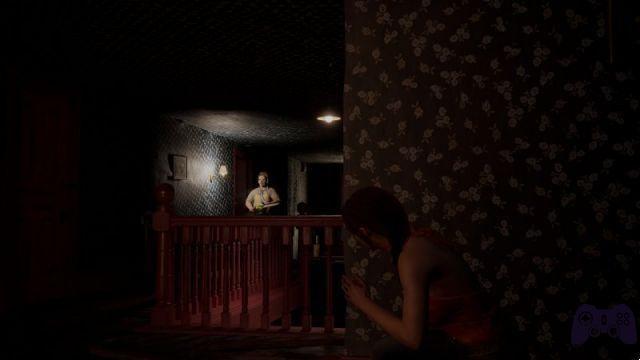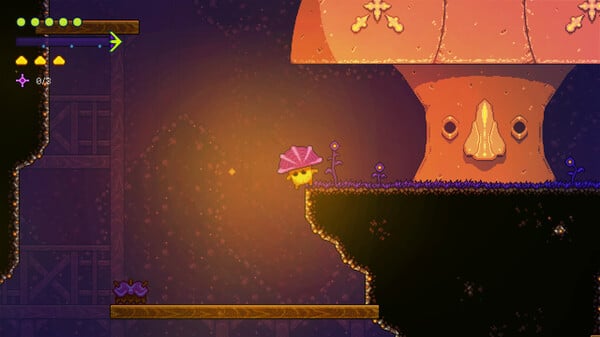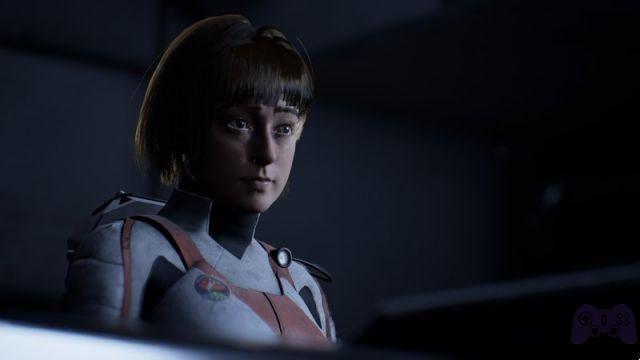Aran, the immortal king of the kingdom of Tessara, was betrayed by his brother Avra and ended up half dead in the wooden hands of a certain Father Nature, who saved his life to keep him prisoner, it is unknown for how long. and it is not well known why. Meanwhile, the world has fallen into chaos, ravaged by hordes of ruthless orcs who have massacred entire populations and taken control of numerous territories. Luckily the situation is recoverable, at least we hope so. At the beginning of the game we see Aran escape the clutches of Father Nature and, instead of launching an Onlyfans to try to monetize the orcs with a paraphilia for humans, he decides to save the situation by recovering his lost powers to stop his brother, who Evidently They will no longer send Christmas cards. Will it be worth guiding him in this endeavor? But not really, as you will discover by reading the Recensione di Testament: The Order of the High Humans.
Father Nature is always by our side
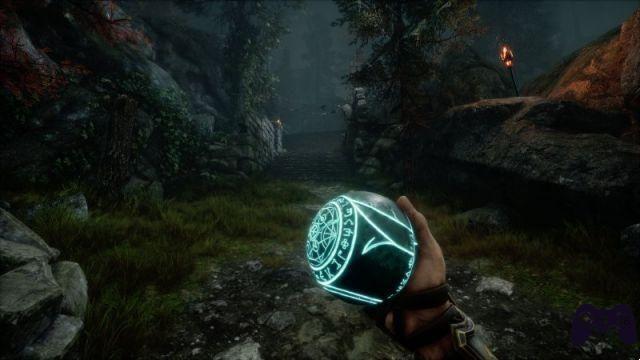
The startup isn't even bad, to be honest. Within a few minutes, Aran leaves Father Nature's house, learns to jump, crouch, climb and interact with the game world. Later he will also discover how to run on walls and climb (slowly) ropes. The escape is quite daring, and the old ship apparently manages to gain the upper hand, throwing the hero off a cliff. Fortunately, or rather unfortunately, the powers that be do not want Aran to die and save him from the disastrous fall. Upon awakening, our man manages to get hold of a sword and begins to strike back at the enemies who want to kill him, whether they are orcs, ferocious canids, golems, flame imps, zombies, armored warriors, wizards or any other creature that stands in the way. his path. Unfortunately the sword also marks the moment in which we understand why the option uninstall Sometimes it can emanate an almost irresistible erotic charge.
The combat system-lol
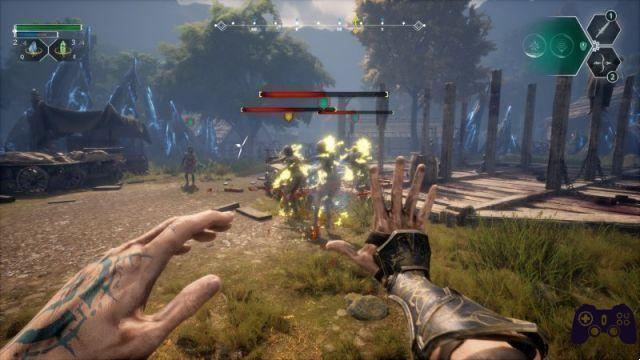
Il combat system by Testament is something we do not hesitate to call terrifying. Good old Aran can do quick attacks, powerful attacks and dodges, and so far there would be nothing bad, if it weren't for the fact that... everything is here. I mean, no, that's not all, because the attacks are very slippery (read: feedback from successful hits is non-existent), there are practically useless combos that can be unlocked by spending skill points, enemies They are complete idiots who use elemental tactics (they basically charge headlong at the player) and are incapable of chasing the hero even on a ladder, while the difficulty is determined mainly by the energy of the enemies, which in some cases are real sponges and require many blows to be knocked down. So, with the sword there are two types of attack and the possibility of dodging. Nothing else. Don't expect to stop or block your opponents' shots or slide your way out of trouble. Nothing at all.
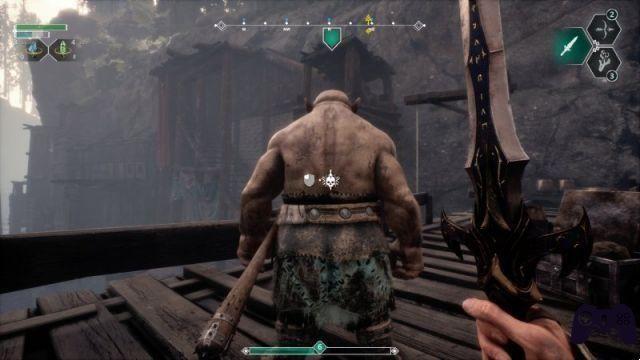
The bow and arrow and system should provide some variety. secrecy, but the first is essentially a target to try to attack the weak points of the enemies and does not have great evolutions throughout the story (plus there are very few arrows around), while the second is, so to speak, a Punishment, based on the old concept of visual cones and really basic enemy AI, which alerts them when they see the character and doesn't give them any ability to create distractions, hide in shadows or manage noise. However, do not be afraid, because their enemies are so stupid that they return to the waiting state a few moments after you leave their field of action, even though they can see us perfectly, so much so that you can use this to your advantage in different ways. It should also be added that it is simply not possible to eliminate all enemies with the stealth system, so there is little point in specializing.
In all this there is no shortage of comical situations, between enemies who look at us for long seconds without knowing exactly what to do, because between us and them there is a fearsome rock or who knows what, others who attack us with fury literally passing over us. his companions, who remain indifferent to the brawl that has just broken out for mysterious reasons. we left it at the end magic, made up of very similar spells, which basically all work as direct hits, at least in the offensive phase, to the point that in the end you tend to always use the most powerful one available, or those that help you recharge energy. It must be said that there are some with more interesting effects, which for example allow you to block more enemies or guarantee protection to the protagonist, but they are drops of bad taste in a sea of sadness, also without particular flashes in terms of inventiveness. The best spell is the final one, which however is used very little because it costs a lot in terms of mana, the latter is not recharged automatically but through the few crystals that the protagonist manages to carry with him.
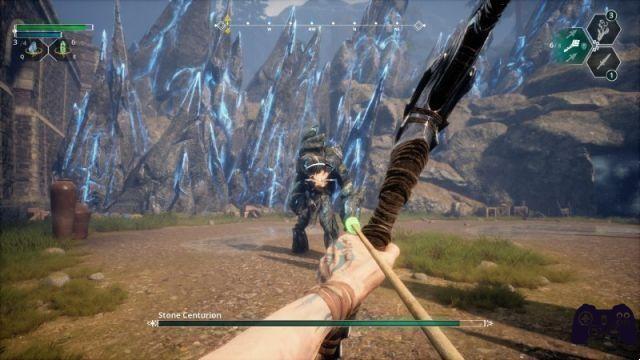
That said, some spells are even unusable not only because they are very slow to cast, but also because, after succeeding, they produce really miserable effects in terms of damage dealt, so you try them briefly and then move on to something else. resurrecting them a lot, occasionally for the sheer love of variety. The essence is that at Testament we struggle above all with the sword.
But it doesn't end here, because there are also other oddities, linked in this case to progression and weapons. For example, we wonder why all enemies offer more or less the same experience, even the highest ranked ones, when solving a single puzzle can yield twenty times more. Why do all weapons seem to deal more or less the same damage, even those that should theoretically be legendary? Why do the most frantic fights become a fluid spectacle, with shots mysteriously missing despite hitting the target (probably due to inaccuracies in the animations' touchpoints)?
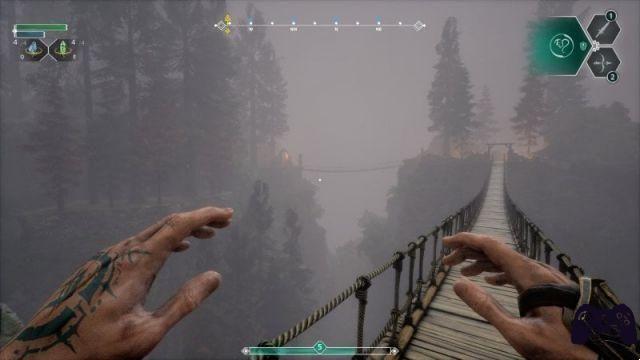
Why include the obligation to use instinct (a kind of additional vision that indicates the enemies' weak points) to visualize flying eyes that make some creatures invincible and that become a huge nuisance when it comes to destroying when you have Around you are dozens of opponents acting? erratically? Why link the same subsystem to enemies made invisible by darkness, which require the tedious search for a certain number of flying eyes to shoot down to be seen (in the meantime, however, they continue to defeat us)? Everything seems incomplete and flawed and the few moments where something works are drowned out by everything else.
Experience constipation
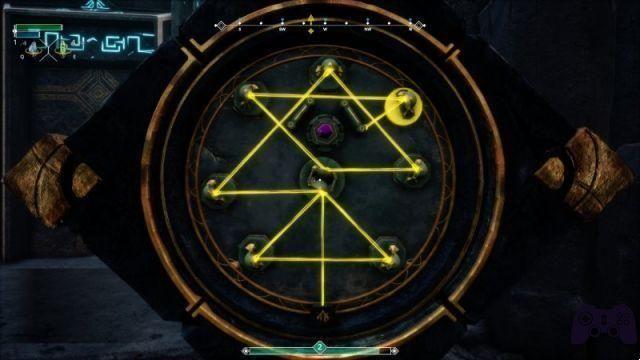
In Testament you face hordes of enemies after hordes of enemies after hordes of enemies after hordes of enemies after hordes of enemies, following the principle of clashes. At first the designers tried to create situations that justified the presence of the opponents, such as gathering them in front of bonfires or placing them to protect some ruins, but after just a few minutes of play the construction of the scenario completely explodes and the principle followed becomes the of random multiplication, with the poor creatures of evil that begin to cause difficulties only due to their number, given the chaos they create, without their presence being contextualized in any way. So, we enter underground complexes that are simply randomly constructed caves where enemies are roughly placed, we enter randomly constructed temples where enemies are roughly placed, we enter randomly constructed ruins where enemies are placed roughly. way… raw? No, very disgusting.
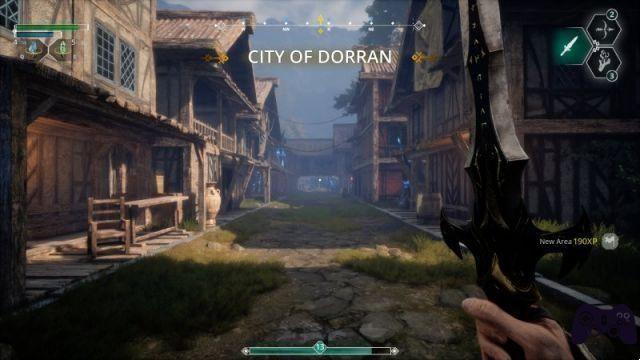
The result is that the combats all seem the same from start to finish, with only a few variables to break the monotony, such as the presence of flying opponents, or that of explosive creatures, which force you to at least rethink the use. to dodge. There are also gods boss, of course, but they are not particularly bright. These are high hit point enemies that follow their own personal attack patterns and repeat them many times during fights, quickly becoming monotonous. In general, the tactics used with generic enemies also apply to them, that is, you dodge their blows, launch an attack, and then go back on the defensive by distancing yourself. As in the rest of the game, even against bosses the combat system does not allow for too many evolutions, otherwise some good moments could have been found. Instead, you'll end up repeating the same tactics for many minutes in a row, until your opponent's entire energy bar is depleted.
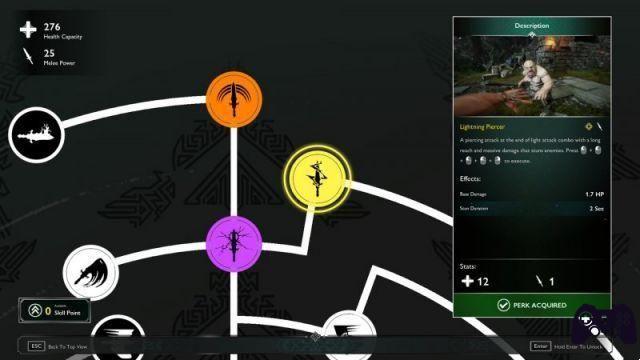
The general monotony of the experience is also evident from the point of view narrative, in which the most interesting trick should be the appearance from time to time of the main antagonist, who instead of killing us on the spot starts talking to us, leaving himself doing nothing, at least until the end of the game. He considers it his fault that the good Aran has become mortal, so he would have every interest in eliminating him on the spot... but no, he wants to see how far the hero can go without his powers. The story itself is not particularly original and develops quite predictably, except for a few twists that have the sole merit of breaking the general monotony. Otherwise, the story remains very vague and the game universe never seems to participate in the events, in its extremely generic fantasy nature. The English dubbing, which is really bad, and the texts translated into Spanish, which are full of errors, also make the situation worse.
Some flashes of light
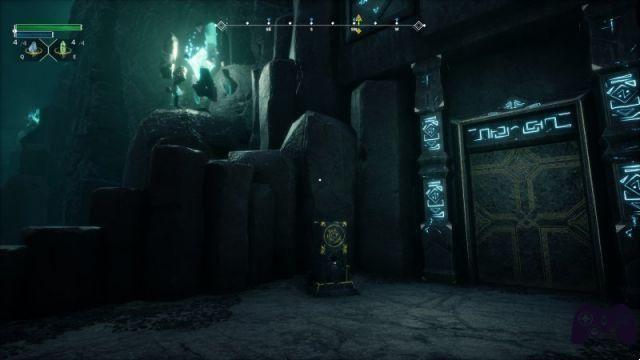
The only sections of the game that intrigued us are those puzzle, unfortunately very rare. We are talking about both environmental puzzles, which require you to manipulate energy switches to change the structure of the places you are in, and those linked to locks, in which you have to deflect rays of light to make them reach a gem. Paradoxically, the platform sections also convinced us more than the combat, because they serve to divide the levels, which are otherwise very linear although they open up a bit to exploration as you progress in the adventure and ask you to go back. own when you have obtained certain abilities, for example to gain powers or reach areas that would otherwise be inaccessible (that's why we talk about "metroidvania", but in reality structurally we are very far from Symphony of the Night and the like). In short, the puzzles and platforming sections somehow work. We are not talking about anything exceptional or unheard of, but at least they show a minimum of creativity and add that pinch of variety that helps not sink into monotony. In short, Testament seems to work best when it pretends to be something else, which does not speak in its favor.
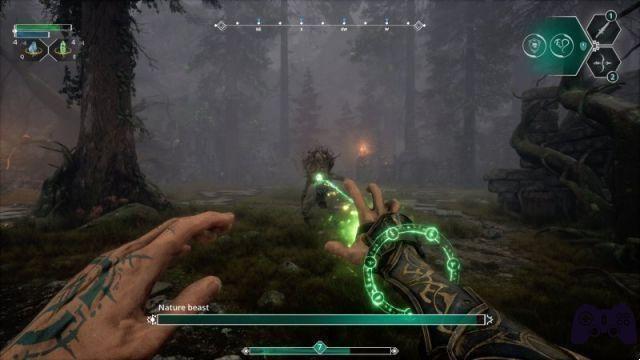
In the same way that the limited room for maneuver left to the player does not speak in his favor. Theoretically it is presented as a first-person role-playing game, with skill trees, weapons to find, equipment, etc. The truth is that everything The progression system is very rigid., considering for example that there are no different skill trees for each specialization, but only one in which skill families are mixed and must be unlocked in a certain order, with very little freedom of choice. The result is that anyone who decides to play Testament will have more or less the same experience and will have the same character. Furthermore, the game itself is very linear, so there is no risk of surprises.
Conclusions
Tested version PC with Windows digital delivery Steam, playstation store, Xbox Store Holygamerz.com 3.5 Readers (19) 6.0 your voteIf it weren't for the combat system and all the other systems connected to it, Testament might have even been interesting. It's a shame that the combat is the fulcrum of the experience (it will take up more than 80% of the game time), so you will understand that we are not talking about a secondary problem that can be overlooked. However, it doesn't seem like it lacks resources, in the sense that modulating them in another way could have been an excellent independent title. He just had to fly lower, avoiding getting involved in trying to imitate models that are simply not within his reach.
PRO
- Puzzles are not bad
- Jump between platforms
AGAINST
- The combat system as a whole.
- character progression
- Repetitive to the core
- Haters are stupid
- Narratively mediocre




